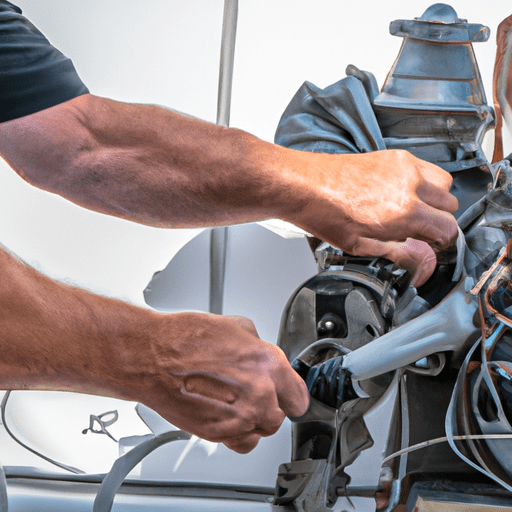Whether you’re a seasoned sailor or a beginner, understanding the basics of marine engine repair is essential for a safe and comfortable sailing experience. All boats depend on their engines to power them through the water, so keeping them in good working order is crucial. This article will provide you with some tips and tricks on how to master the art of marine engine repair.
1. Regular Maintenance Checks
The first step in mastering marine engine repair is to carry out regular maintenance checks on your engine. This means inspecting the various components for wear and tear, checking fluid levels and filters, and ensuring that all moving parts are well lubricated. You should also keep the engine clean and free from debris, as this can cause overheating and other problems. By taking care of your engine and addressing small issues before they become big problems, you will ensure that your boat is always running smoothly.
2. Understanding the Parts of a Marine Engine
Before you can start repairing your engine, it’s essential to understand the different parts that make up a marine engine. These include the crankshaft, camshaft, pistons, connecting rods, valves, and fuel injectors. By understanding how each component works together to power your boat, you’ll be able to diagnose problems more effectively and make the necessary repairs.
3. Proper Storage
Proper storage is also crucial for maintaining your engine. If you’re leaving your boat for an extended period, it’s essential to prepare your engine by draining fuel, changing the oil, and lubricating any moving parts. This will prevent corrosion and ensure that your engine is ready to go when you return. It’s also a good idea to protect your engine from the elements by covering it with a tarp or storing it in a protected area.
4. Identifying Common Problems
Some common problems that can occur with marine engines include overheating, poor performance, rough idling, and difficulty starting. Understanding the most common issues that can arise will help you to diagnose and fix problems quickly. For example, a clogged fuel filter can cause poor performance, while a faulty alternator can result in difficulty starting.
5. Using the Right Tools
One of the most important elements of mastering marine engine repair is having the right tools. You’ll need a set of basic wrenches, screwdrivers, pliers, and wire cutters, as well as more specialized tools like a compression tester, multimeter, and spark plug socket. It’s also a good idea to invest in a shop manual for your engine, which will provide detailed instructions on how to repair and maintain your engine.
6. Seeking Professional Help
While it’s essential to develop your skills in marine engine repair, there will be times when you need to seek professional help. Some repairs are just too complicated or dangerous to attempt yourself, and a trained mechanic will have the knowledge and experience to fix the problem quickly and safely. If you’re unsure about how to proceed with a repair, it’s best to err on the side of caution and seek professional help.
7. Safety Precautions
Finally, it’s important to remember that working on a marine engine can be dangerous, and safety precautions should always be taken. This includes wearing protective clothing and safety glasses, using caution when working around moving parts, and ensuring that the engine is cool before starting work. It’s also a good idea to turn off all electrical systems before starting work on the engine, as this will prevent accidental shocks.
In conclusion, mastering the art of marine engine repair takes time, patience, and practice. By carrying out regular maintenance checks, understanding the parts of your engine, and identifying common problems, you’ll be able to diagnose and fix issues more effectively. Investing in the right tools and seeking professional help when necessary will also help you to keep your engine in good working order. And always remember to take safety precautions when working on your engine. By following these tips and tricks, you’ll be well on your way to a smooth sailing experience.


